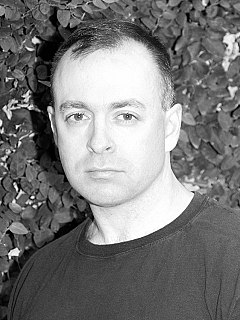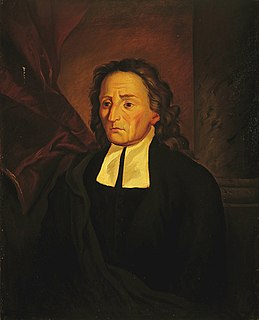A Quote by John Ashbery
One can lose a good idea by not writing it down, yet by losing it one can have it: it nourishes other asides it knows nothing of, would not recognize itself in, yet when the negotiations are terminated, speaks in the acts of that progenitor, and does recognize itself, is grateful for not having done so earlier.
Related Quotes
To despair over one's sins indicates that sin has become or wants to be internally consistent. It wants nothing to do with the good, does not want to be so weak as to listen occasionally to other talk. No, it insists on listening only to itself, on having dealings only with itself; it closes itself up within itself, indeed, locks itself inside one more inclosure, and protects itself against every attack or pursuit by the good by despairing over sin.
Further, in writing, I feel corrupt and unethical if I have to look up a subject in a library as part of the writing itself. This acts as a filter--it is the only filter. If the subject is not interesting enough for me to look it up independently, for my own curiosity or purposes, and I have not done so before, then I should not be writing about it at all, period. It does not mean that libraries (physical and virtual) are not acceptable; it means that they should not be the source of any idea.
Studios are often very nervous of things they don't recognize, by which I mean things that haven't been done before, and therefore, they take a really original idea, and they recognize the originality, and then they try and make it look like something they recognize. So they try to turn it into something far more procedural.
Man is the namer; by this we recognize that through him pure language speaks. All nature, insofar as it communicates itself, communicates itself in language, and so finally in man. Hence, he is the lord of nature and can give names to things. Only through the linguistic being of things can he get beyond himself and attain knowledge of them-in the name. God's creation is completed when things receive their names from man, from whom in name language alone speaks.
I can recognize a good actor. I can recognize someone that can convey emotion and that has the essence and not get lost in the minutia of, 'Well, that person's got red hair, and so does the other.' Some of the decisions in casting that seem so important at the time, until you get on set and you're starting to shoot.
The heart has its reasons of which reason knows nothing. We feel it in a thousand things. I say that the heart naturally loves the Universal Being, and naturally loves itself; and it gives itself to one or the other, and hardens itself against one or the other, as it chooses...it is the heart that feels God, not the reason; this is faith.
I recognize this in my writing process. A consistent writing structure opens the door to amazing insights. I recognize the truth of this in my daily habits. When I set my keys in the place I, with practice, always set my keys... I do not lose them. In many instances an ordered external structure can be an invitation for an extraordinarily unfettered, creative and unbounded inner structure.
It is not the weariness of mortality, but the strength of divinity, which we have to recognize in all mighty things; and that is just what we now never recognize, but think that we are to do great things by help of iron bars and perspiration. Alas! we shall do nothing that way but lose some pounds of our own weight.







































